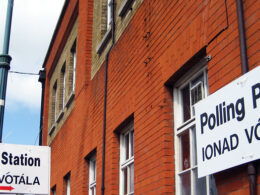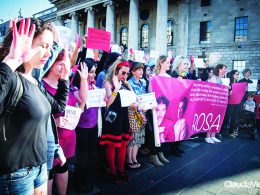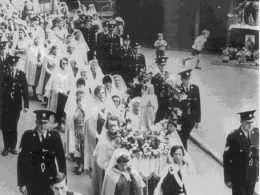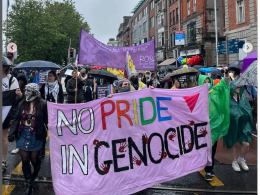CW for distressing details of r*** and abuse
In a stunning decision, Gisèle Pelicot faced down the rape culture that demands survivors of abuse carry the burden of shame and secrecy. She refused a closed trial, demanding that the public join her in confronting the truth about her abuse by more than 70 men, one of whom she shared a life with.
Gisèle was drugged and raped repeatedly by her long-time husband over the course of almost a decade. He invited dozens of men into their home and filmed them as they also rape her unconscious body, causing her to contract several sexually transmitted infections. She fought for the videos of her abuse to be shown in court, forcing the world to reckon with the truth of men’s violence against women – including those they claim to love.
Normal men
The men came from all walks of life – lorry drivers, soldiers, firefighters, security guards, farm workers, a supermarket worker, a journalist and unemployed. The youngest suspect was 22 when he entered Ms Pelicot’s bedroom, while the oldest was in his early 70s. Many had children and were in relationships. Most lived within a 50km radius of the Pelicots’ village of Mazan.
Unlike many victims of abuse, Gisèle had ‘hard evidence’ that demonstrated clearly that she was raped according to the legal definition of rape in France. She was so heavily sedated she could be heard snoring in the videos. This did not prevent the legal defence for many of the perpetrators from using misogynistic tropes to try to claim that it wasn’t rape.
Bravely waiving anonymity
There are many valid reasons why survivors of abuse need anonymity and do not want evidence or details of their case to be shared with the public. Abusers are often family members. Survivors often have children to consider. Abusers can be powerful people capable of waging a social media / media campaigns of hate against their victim. Stigma can be mobilised at any moment to cause further destruction to the lives of survivors forcing them to be silent and ashamed in a society that routinely subjugates survivors and protects abusers.
In fact, victims of abuse are essentially shunned from society in a myriad of ways. The toll can lead to physical and mental health issues that make life even more difficult.
Deeply misogynistic culture
Gisèle did ‘everything right’. She settled down in a monogamous marriage with a ‘good man’ who she described as “perfect”. And yet, it was this man who brutalised her in the most inhumane way. How can we understand this? How can we understand that it was possible to find so many men in such a small catchment area who would do this?
We would like to believe that there is somewhere in this unjust, cruel, profit-driven system that is safe, warm and loving. A place we usually call ‘home’. Unfortunately, the culture that emanates from the economic and political structures of capitalism seeps into even our most intimate personal settings and relationships. The most ordinary of men are not immune from the toxic impact of misogyny and rape culture. And yet we need ordinary men to stand against misogyny and violence against women if we are to collectively struggle for a society free from exploitation and oppression.
A heroic symbol
Gisèle Pelicot (72) has become a symbol of courage and power, admired by survivors the world over. It is essential that ordinary men also see that they have a vital role to play in combating gender-based violence on an individual level, in close relationships, in movements, in left political organising and in workplaces. The hate, violence, misogyny, exclusion, racism, transphobia that is required for this system to rule and profit will chain us to our own defeat in the fight for a better life if we do not reject it all.












